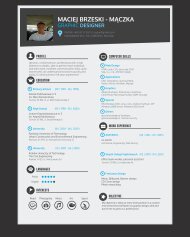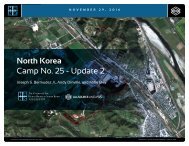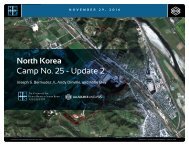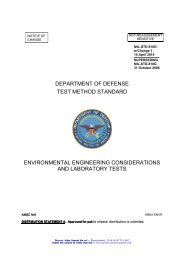ASA_HRNK_Camp12_201608_v10_LR
Create successful ePaper yourself
Turn your PDF publications into a flip-book with our unique Google optimized e-Paper software.
H R<br />
N K<br />
CH’OMA-BONG KYO-HWA-SO NO. RESTRICTED 12, JŎNGŎ-RI AREA<br />
North Korea: Imagery Analysis of Kyo-hwa-so No. 12, Jŏngŏ-ri<br />
China<br />
South<br />
Korea<br />
Location:<br />
Hoeryŏng-si, Hamgyŏng-bukto<br />
Coordinates:<br />
42.209410 N, 129.755100 E<br />
Date of Report:<br />
August 29, 2016<br />
Date of Imagery:<br />
High resolution: July 12, 2003<br />
through May 24, 2015<br />
Landsat: May 27, 1976 through<br />
June 6, 1984<br />
Declassified KH-4: April 7, 1967<br />
Size of Facility:<br />
23,600 square meters (28,230<br />
square yards)<br />
188 meters by 128 meters (205<br />
yards by 139 yards)<br />
Overview of North Korea’s Prison Camp<br />
System<br />
North Korea has a complex variety of<br />
facilities for detention and forced labor.<br />
The two large-scale facilities that are both<br />
usually termed “prison camps” in English<br />
are termed kwan-li-so and kyo-hwa-so<br />
in Korean. Kyo-hwa-so are re-education<br />
prison labor camps, and kwan-li-so are<br />
penal labor colonies.<br />
Kwan-li-so are, with one exception,<br />
sprawling encampments that encompass<br />
mountain ranges and valleys deep in the<br />
interior of central and north-central North<br />
Korea and are surrounded by barbed wire<br />
fences and guard towers. These penal<br />
labor colonies are administered by the<br />
powerful State Security Department (or<br />
Agency).<br />
In addition to kwan-li-so political prison<br />
camps, North Korea also operates prison<br />
labor camps called kyo-hwa-so. Kyohwa-so<br />
labor camps are “serious crimes”<br />
re-education prison camps, sometimes<br />
appearing in satellite photographs as a<br />
number of buildings surrounded by typical<br />
prison walls, and sometimes appearing as<br />
prison camps with widely separated prison<br />
sections surrounded by barbed wire and<br />
guard towers.<br />
What the kyo-hwa-so prison camps share<br />
with the kwan-li-so prison camps are<br />
extremely brutal conditions. The brutality<br />
affects both those convicted of actual<br />
offenses and those sentenced for essentially<br />
political offenses. A state can deprive<br />
its citizens of their liberty for what are universally<br />
regarded as criminal acts. A state<br />
may not, under contemporary international<br />
norms and standards, fail to provide food<br />
to those unjustly, or even justly, deprived of<br />
their liberty or subject them to forced labor<br />
so intense and dangerous that it leads to<br />
widespread deaths in detention. 1<br />
Based on research conducted by the<br />
Committee for Human Rights in North<br />
Korea (<strong>HRNK</strong>), five trends have defined<br />
the human rights situation under the Kim<br />
Jong-un regime: 1) an intensive crackdown<br />
on attempted defections; 2) an aggressive<br />
purge of senior officials, aimed to consolidate<br />
the leader’s grip on power; 3) a<br />
“restructuring” of the political prison camp<br />
system, with some facilities, closer to the<br />
border with China, being shut down, while<br />
inland facilities have been expanded; 4)<br />
disproportionate oppression of women,<br />
who have assumed primary responsibility<br />
for the survival of their families; thus,<br />
women represent the majority of those<br />
arrested for perceived wrongdoing at the<br />
“jangmadang” markets, or for “illegally”<br />
1. Hawk, David. The Hidden Gulag IV: Gender Repression<br />
and Prisoner Disappearances, (Washington, D.C.:<br />
<strong>HRNK</strong> 2015), pp. 12-27, (hereafter: HG4) available at<br />
https://www.hrnk.org/uploads/pdfs/Hawk_Hidden-<br />
Gulag4_FINAL.pdf.<br />
crossing the border; and 5) the sustained, if<br />
not increased, economic importance of the<br />
political prison camps.<br />
<strong>HRNK</strong> calls upon the government of the<br />
Democratic People’s Republic of Korea<br />
(DPRK) to:<br />
Increase the quantity and variety of food<br />
provisions to its prisoners to ensure<br />
they do not starve to death or become<br />
malnourished. All people have a right to<br />
food.<br />
Improve the working conditions in its<br />
mines by having and practicing safety<br />
standards and ventilating the mines.<br />
Also, reduce the number of hours per<br />
day that prisoners must work in the<br />
mines, and give them additional food<br />
and water for difficult manual labor.<br />
Ensure that waste run-off from mining<br />
does not contaminate fresh water<br />
sources for people in and around the<br />
mines and detention facilities as this<br />
may lead to serious health and environmental<br />
problems.<br />
Continue to grant mass amnesty in<br />
order to reduce the overcrowding in<br />
prison cells. This will reduce the number<br />
of deaths and sickness in detention.<br />
Allow the ICRC to have immediate, full,<br />
and genuine access to all detention<br />
facilities in the DPRK.<br />
Comply with the Standard Minimum<br />
Rules for Treatment of Prisoners.<br />
COPYRIGHT ©ALLSOURCE ANALYSIS, INC. 2016 2



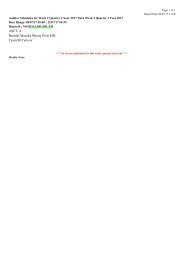
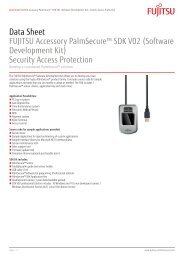
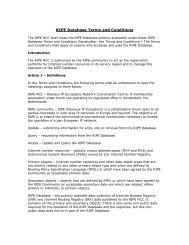

![CV-MBM[186]](https://img.yumpu.com/59137292/1/190x238/cv-mbm186.jpg?quality=85)
